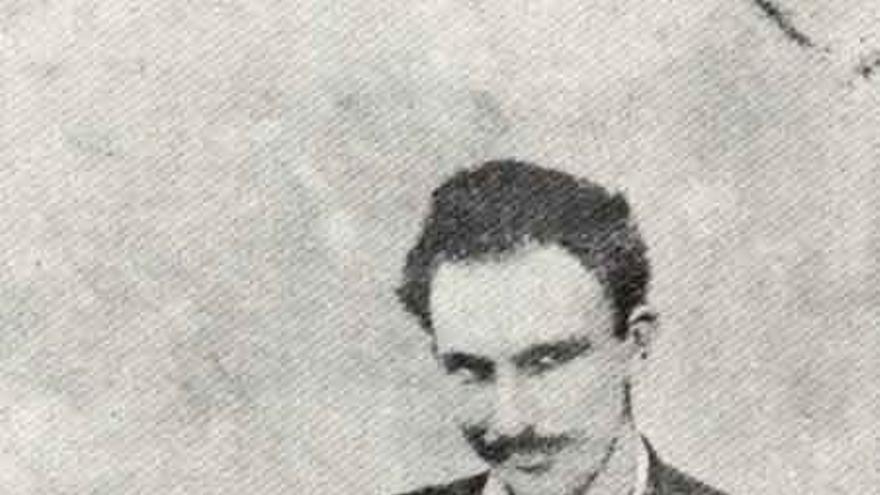
I saw it, I saw it coming that afternoon
I saw him smile in the midst of his grief
José Martí, The Political prison in Cuba
![]() 14ymedio, Yunior García Aguilera, Madrid, 4 January 2021 — What was José Martí laughing at? History tends to encircle its heroes in a marble seriousness that prevents us from any profane approach. Fortunately, in recent years articles have been appearing that investigate more intimate areas of the biography of “the Apostle.” With less shyness, they dust off insights about his sexuality, his illnesses, and other controversial aspects of his life. However, almost nothing appears on a subject that could offer us a more complete and humane vision of the most universal of Cubans: his sense of humor.
14ymedio, Yunior García Aguilera, Madrid, 4 January 2021 — What was José Martí laughing at? History tends to encircle its heroes in a marble seriousness that prevents us from any profane approach. Fortunately, in recent years articles have been appearing that investigate more intimate areas of the biography of “the Apostle.” With less shyness, they dust off insights about his sexuality, his illnesses, and other controversial aspects of his life. However, almost nothing appears on a subject that could offer us a more complete and humane vision of the most universal of Cubans: his sense of humor.
It is true that Martí’s life was marked by suffering. When he was barely twelve years old, he lost his little sister María del Pilar; and later Lolita. He had to face his father’s severity early on. It was impossible for him to show indifference to slavery and the lack of freedom of his homeland. He suffered prison at sixteen. He went into exile before he was eighteen. He had to endure for the rest of his life the consequences left by the shackles. He suffered from a disease (sarcoidosis) that harassed him until his death. He was almost never able to enjoy his son’s company and had to accept the complaints and claims of his family, who never fully understood his obsessive dedication to the cause of independence.
Martí was, in the full sense, a serious man. The colors of his clothes reflected the mourning for his homeland. And the iron ring was perhaps the closest symbol to his character. He himself acknowledged, in response to an article that tried to discredit him, that “the tone of a joke was foreign” to him. However, on a painful occasion he would write to his friend Manuel Mercado: “I smile at myself in all my sadness.”
And he is someone who grew up with six younger sisters, who enjoyed from an early adolescence the very creole humor in Cuban theater, who adored children’s smiles. Someone who, in short, had such a deep affection for spirituality, he could not deny himself the pleasure of laughing and making others laugh.
Martí, with his closest friends, knew how to make fun of himself. There is a carefreeness in his drawings that points to sympathy. Even in the caricature, the comedy flashes. In a letter to his beloved Fermín Valdés, he talks about his ears. He alleges that the reason that they were separated from his face “more than normal” was due to his teachers pulling on them. Knowing how to make fun of yourself is usually an indication of a healthy sense of humor.
Nicknames or nicknames were not lacking either. The Master’s singular oratory reached evangelical tones. This not only brought him thousands of fans, but also the odd mockery. Since his youth, in Spain, he earned the nickname “Cuba cries” due to an incident where, after saying that phrase, a map of Cuba fell on his head. Martí himself, in a letter to Rafael Serra, says: “I remember that, in the session of the casinistas [socialists who met in casinos or clubs], I burst out with something like Cuba cries … and since then I was left with the nickname among Cubans from Madrid.”
In his work words such as “laugh,” “joke,” “comedy,” “laughter” appear repeatedly. There is in his bibliography a torrent of critical comments about comedies that you read or saw on stage. Ironies, jokes and phrases that seek to elicit smiles from the recipient appear regularly in his letters. A black humor, rarely seen in his literature, suddenly springs up in his chronicle of a jungle trip to Guatemala.
There is still much to write about Martí’s laughter, although only one photo remains where he hints at a timid grin before the camera, breaking his usual seriousness. Martí would speak of Dickens as if he were referring to himself: “Laugh with tears in his eyes; or cry with laughter on his lips.” That, perhaps, is the best definition of Marti’s sense of humor, always a mixture of anguish and joy, or vice versa.
During these “festive” days, many Cubans have expressed their sadness at the repression and the hundreds of political prisoners who could not be close to their families. But pain should never take away the possibility of hope. That inextinguishable ray of light was surely the reason why Alfonso Reyes would describe Martí as “a son of pain, who never lost his smile.”
____________
COLLABORATE WITH OUR WORK: The 14ymedio team is committed to practicing serious journalism that reflects Cuba’s reality in all its depth. Thank you for joining us on this long journey. We invite you to continue supporting us by becoming a member of 14ymedio now. Together we can continue transforming journalism in Cuba.
